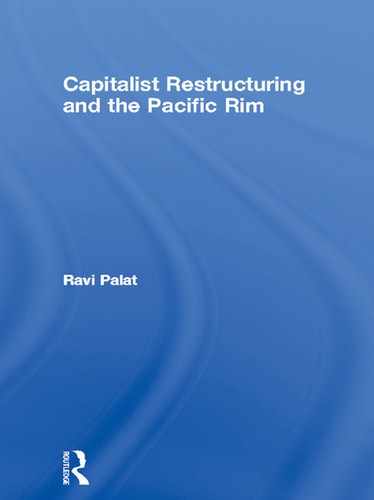Preface
I was instinctively suspicious of predictions that we were standing on the cusp of a new ‘Pacific century’ when I first seriously encountered them on joining the Asian Studies Program at the University of Hawaii in 1989. As I started reading and teaching about East and Southeast Asian economies, I found much evidence which seemed to go against the prevalent orthodoxy. But it was the invitation to give a lecture at the Department of Sociology at the University of Auckland in 1992 that irritated a suspicion into a research project. If the financial crisis of 1997–98 proved that my initial suspicions were right even before I completed writing up my findings, the savage intensity of the crisis led to regional initiatives that are obscured by triumphant proclamations of Western economists. These regional initiatives may yet turn Pacific-Asia into an economic superpower as the region metamorphoses from a low-cost exporter to the world to an area of higher mass consumption and its several economies are freed from their dependence on US markets.
I was privileged in being able to rehearse my arguments over the years with some extraordinary colleagues and students. Arriving in Honolulu, after just having completed a Ph.D. dissertation on the historical sociology of the Indian Ocean, I could ask for no better guides in helping me understand the political economy of East Asia than Hagen Koo and Alvin So. Over the years, they have generously read and commented on various pieces I have done on East and Southeast Asia including earlier drafts of this book, as has Mimi Sharma. Some of the ideas that have eventually worked their way here were first presented at the Political Economy Group at Hawaii, and I especially thank Harry Friedman, Benedict Kerkvliet, Peter Manicas, and Bob Stauffer. And above all at Hawaii, my greatest debt is to Cristina Bacchilega for her encouragement, the warmth of her friendship, and for the fun we have shared for over twenty years.
I can imagine no more collegial a place than the Department of Sociology at the University of Auckland when I arrived there in July 1993. Barry Smart first suggested I write this book and earlier versions have benefitted from discussions with David Bedggood, Charles Crothers, Cluny Macpherson, Tracey McIntosh, Kit Malalgoda, Nick Perry, and Ivanica Vodanovich. Tracey Jones initiated me into Kiwiana and has been a very dear and caring friend for many years.
Over twenty years of conversations, arguments, and friendship with Giovanni Arrighi, Terence Hopkins, Caglar Keyder, Mark Selden, Beverly Silver, Faruk Tabak, and Immanuel Wallerstein have provided the basic framework for this book. Giovanni, Beverly, Caglar, and Fred Deyo read parts of the book, while Faruk read all of it – and some parts several times over! He constantly pushed me to go further than I had intended but he is well compensated by the pleasure he derived from me being forced to cut the length of this book by almost a third of its original size!
Among others, Mark Berger, Kyung-sup Chang, Vedi Hadiz, William Hayes, Kevin Hewison, Su-Hoon Lee, Philip McMichael, T. J. Pempel, and Lily Rahim have either shared their expertise with me or provided me with unpublished copies of their work. In 1995, Bruce Koppel arranged a small grant for me at the East-West Center to do some research for this book and work at the University of Hawaii Library. In the summer of 2001, Alvin So kindly arranged for me to spend five weeks at the Hong Kong University of Science and Technology. A research semester grant in the Fall of 2002 by the Harpur College dean provided relief from teaching to complete this manuscript. The final revisions on the first draft were completed in Istanbul, where Biray Kirli was a most generous host. But to Biray, I owe much more than that: when I came back to Binghamton in January 2001, she was the first new friend I made there and her loving comradeship lifted my spirits even in a Binghamton winter! She has been a constant source of warm encouragement and of emotional support.
My brother and sister-in-law, Raghu and Pushpa Palat and my nieces, Divya and Nikhila, in Bombay were always welcoming and provided a warm respite whenever I returned to India. I always enjoyed going back to the Nilgiri Hills where I had spent much of my youth. It was also where my grandmother lived and I deeply regret that she died just as I was putting the final touches on this book. I dedicate this book to her memory.
